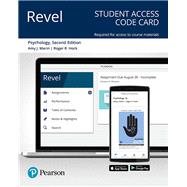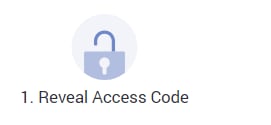For courses in Introductory Psychology
Foster student success with accessible writing and an active-learning approach
Revel™ Psychology meets all students where they are and provides exactly what they need to be successful in the Introductory Psychology course.
Building on their inviting writing style, authors Amy Marin and Roger Hock immerse students in interactive learning at every turn. The 2nd Edition offers additional ways to support each reader’s individual needs in the form of new Choose Your Example features and an enriching Your Turn to Prepare for Success introductory chapter. With its straightforward writing style and consistent application opportunities, Revel Psychology is designed to help all students achieve success.
Foster student success with accessible writing and an active-learning approach
Revel™ Psychology meets all students where they are and provides exactly what they need to be successful in the Introductory Psychology course.
Building on their inviting writing style, authors Amy Marin and Roger Hock immerse students in interactive learning at every turn. The 2nd Edition offers additional ways to support each reader’s individual needs in the form of new Choose Your Example features and an enriching Your Turn to Prepare for Success introductory chapter. With its straightforward writing style and consistent application opportunities, Revel Psychology is designed to help all students achieve success.
NOTE: Revel is a fully digital delivery of Pearson content. This ISBN is for the standalone Revel access card. In addition to this access card, you will need a course invite link, provided by your instructor, to register for and use Revel.











